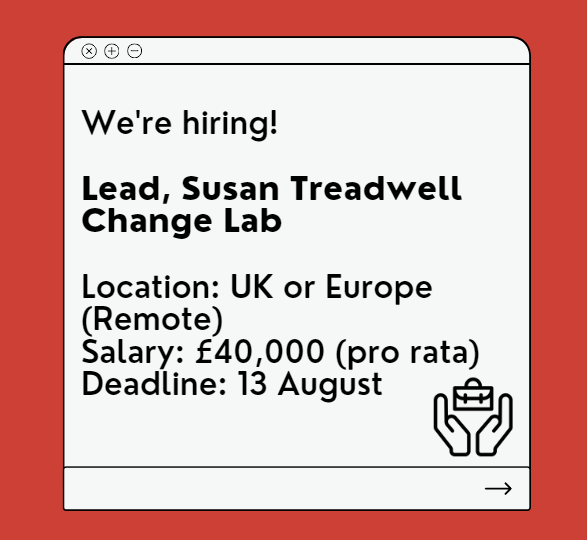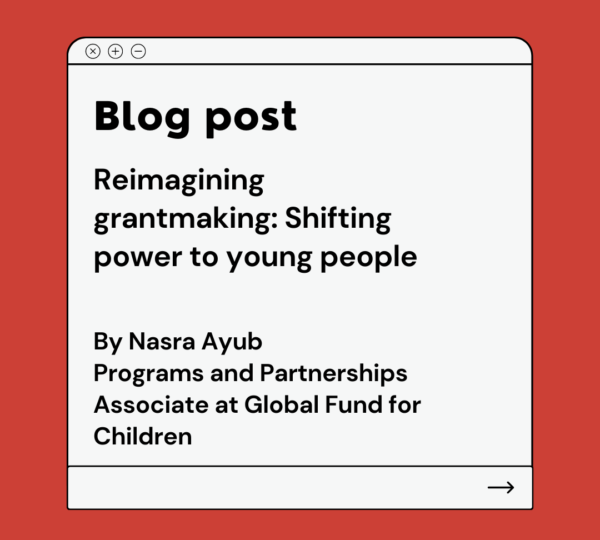Catriona Gourlay, Executive Director of the PeaceNexus Foundation offers some insights into why and how the foundation is supporting organisational change and peace building. The blog is cross-posted from European Foundation Centre’s website (original can be found here).
Who we are, what we do and why
PeaceNexus (PN) was founded with a mission to support peace-relevant actors to be more effective in contributing to building peace[1]. We partner with international and local actors to strengthen: their organisational development, their conflict-sensitivity[2] and their ability to develop solutions to local peacebuilding problems through inclusive dialogue[3]. Our theory of change is that by strengthening these core competencies, we multiply our partners’ impact.
Organisational change is hard…
The first two objectives require internal organisational change. Our field is familiar with articulating its work as change interventions, yet it isn’t easy to apply the same thinking to one’s own transformation.
For organisations requesting our support, identifying their needs is the first hurdle: many issues will be symptoms of deeper structural ones. In most cases our partners organisational change objectives are adapted after the first participatory assessment phase. Developing a roadmap for change also requires trade-offs familiar to those working on social change. It needs to be targeted and aligned with a clear vision for the future, while flexible and inclusive enough to manage resistance and generate shared ownership.
…and not easy to support
Our role goes well beyond covering the costs of facilitators, technical experts and workshops required by these change processes. We help our partners diagnose and prioritize their organisational needs, and accompany each step of the process. We are open to adaptations along the way but also challenge partners to maintain momentum and take difficult decisions. Crucially, this requires a relationship of trust. Organisations are reticent to discuss their internal problems. This is particularly true with governmental partners, where we usually start with technical assistance that can facilitate relationship-building. With civil society organisations, we engage on the basis of an Annual Call for Proposals[4] where we explain our approach as clearly as possible. But communication remains a challenge: tailored processes don’t always follow predictable steps and applicants are quick to read “organisational development support” as core funding.
Selecting the right partner is also challenging. To ensure we support only the most relevant actors in any given context, we need to understand their role and assess the potential relevance of organisational strengthening on their operational impact. We also need to find out if there is sufficient ‘change energy’ within the organisation: for processes to work our partners must be hurting enough to be committed to change, especially if this will challenge deeply-engrained practices. To work out if the preconditions for success are in place we have developed a two-step engagement process. We assess written applications and conduct due diligence calls before selection, but only make and financial contractual commitments after the participatory assessment phase.
Finally, monitoring and evaluating our impact remains a challenge. How should we measure changes in organisational performance and how can we attribute peacebuilding impact to these changes? Our response has been to monitor internal changes closely, both directly and through independent partner surveys. This generates evidence of changes that we directly contributed to and critical feedback that we rely on to improve our services. To assess the sustainability of our interventions and their impact on the organisation’s performance and context, we conduct after action reviews at the end of a process and return to partners 18 months later to gather evidence of follow-on results.
Our first results…
We certainly have success stories: partners experiencing rapid growth after strengthening governance and implementing a new strategy – or successful transitions from founder to the next generation. But we are too young to have gathered robust evidence on how internal organisational changes affected their operational impact. Independent surveys,[5]however, show that over 60% of our partners reported our support played a role in the delivery of their biggest peacebuilding achievements of the past two years, and 75% indicated they would not have achieved organisational change without our support. Partners also tell us that our flexibility and ‘tough love’ approach was key to their success.
..and invitation
In future we aim to share practical lessons learned with a broader audience. We capture these lessons through peer-learning events with the consultants that we work with, and with members of the leadership of our partner organisations. And while we are committed to providing confidential services, we will invite some partners to write up and share their stories of how they managed organisational development processes that have strengthened the effectiveness of their organisations. If you are interested in hearing these stories, please reach out to us.
We hope that our approach is also of interest to other donors. We believe that organisational change processes are high-leverage interventions that should receive greater donor attention. We also welcome requests from other foundations for advice on how to support conflict-sensitive grant making or on how to integrate organisational development support into your programmes and partnerships.
[1] For more information about current and past projects see : www.peacenexus.org
[2] Conflict Sensitivity is the ability of an organization to understand the conflictual context in which it operates in, the interaction between its intervention and that context in order to avoid unintentionally feeding into further division, and to maximize the potential contribution to social cohesion and peace.
[3] The Executive Summary of our new strategy can be found on our website.
[4] The 2018 Call will be launched in early May.
[5] Conducted anonymously by an independent consultant in November 2016, with PeaceNexus’ 22 partners that receive organisational development support.






